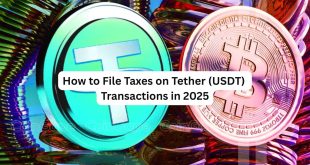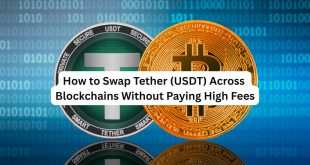As Web3 continues to revolutionize the internet with decentralization, transparency, and user ownership, it’s also opening new income opportunities—especially for content creators, influencers, and marketers. One of the most accessible and low-barrier ways to earn money in this space is through Web3 affiliate programs.
In this post, we’ll explore what Web3 affiliate programs are, how they work, and how you can start earning passive income by promoting decentralized platforms, apps, and services.
What Are Web3 Affiliate Programs?
Affiliate programs are referral-based systems that reward users for driving traffic or sales to a product or service. In Web3, these programs are often integrated with blockchain-based projects like:
- DeFi platforms (e.g., Uniswap, PancakeSwap)
- NFT marketplaces (e.g., OpenSea, Rarible)
- Crypto exchanges (e.g., Binance, Coinbase)
- Web3 tools and wallets (e.g., Ledger, MetaMask)
- Blockchain-based games and metaverses
Affiliates earn commissions when someone signs up, trades, mints an NFT, or completes another action via their unique referral link.
Why Web3 Affiliate Programs Are Unique
Web3 affiliate marketing has some advantages over traditional affiliate marketing:
- Higher payouts: Many Web3 projects offer generous commissions to incentivize early adoption.
- Smart contract tracking: Some platforms use blockchain-based tracking for transparency and immutability.
- Crypto payouts: Commissions are often paid in cryptocurrency, allowing for fast, borderless earnings.
- Global access: No bank accounts or middlemen required—just a crypto wallet.
How to Get Started
Here’s a simple step-by-step guide to starting your Web3 affiliate journey:
1. Choose Your Niche
Focus on a Web3 niche you understand or are passionate about:
- NFTs and digital art
- DeFi investing
- Crypto wallets and security
- Blockchain gaming
- Metaverse real estate
2. Find Reputable Affiliate Programs
Some examples include:
| Platform | Type | Commission |
| Binance | Exchange | Up to 50% trading fee |
| Ledger | Wallets | 10-15% per sale |
| Crypto.com | App/Exchange | Up to $50 per referral |
| LooksRare | NFT Marketplace | Up to 2% of trade value |
| Brave Browser | Web3 browser | Varies (via Uphold wallet) |
Pro Tip: Check official sites or affiliate networks like Impact, Refersion, or PartnerStack for access.
3. Create Content with Value
Build trust with your audience. Share your experiences, tutorials, reviews, and comparisons through:
- Blog posts
- YouTube videos
- Twitter threads
- TikTok or Instagram Reels
- Discord or Telegram communities
4. Include Your Referral Links
Use your affiliate links smartly in your content. Be transparent with your audience—disclose affiliate relationships to build trust.
5. Optimize and Track Performance
Monitor which content drives the most signups or conversions. Most affiliate dashboards offer tracking and analytics.
Tips to Maximize Your Earnings
- Educate your audience: People new to Web3 need guidance. Walk them through setups like wallet installations, bridging tokens, or using a DEX.
- Build an email list: Use newsletters to update your followers on new tools, airdrops, and offers—while re-sharing affiliate links.
- Leverage trends: Cover emerging platforms or token launches while they’re hot.
- Use SEO: Blog posts with the right keywords can drive long-term organic traffic.
- Join communities: Active presence in Web3 forums, Twitter Spaces, or Reddit can build authority and reach.
Final Thoughts
Web3 affiliate programs are a powerful way to earn income in the decentralized economy—even if you’re not a developer or investor. All you need is a basic understanding of blockchain tools, a wallet, and the ability to create valuable content.
Start small, be honest with your audience, and build long-term trust. As the Web3 ecosystem matures, early affiliate marketers will be well-positioned to grow with it.
 UBUCH ubuch | Honest Tech Reviews & Tutorials for Everyone
UBUCH ubuch | Honest Tech Reviews & Tutorials for Everyone




